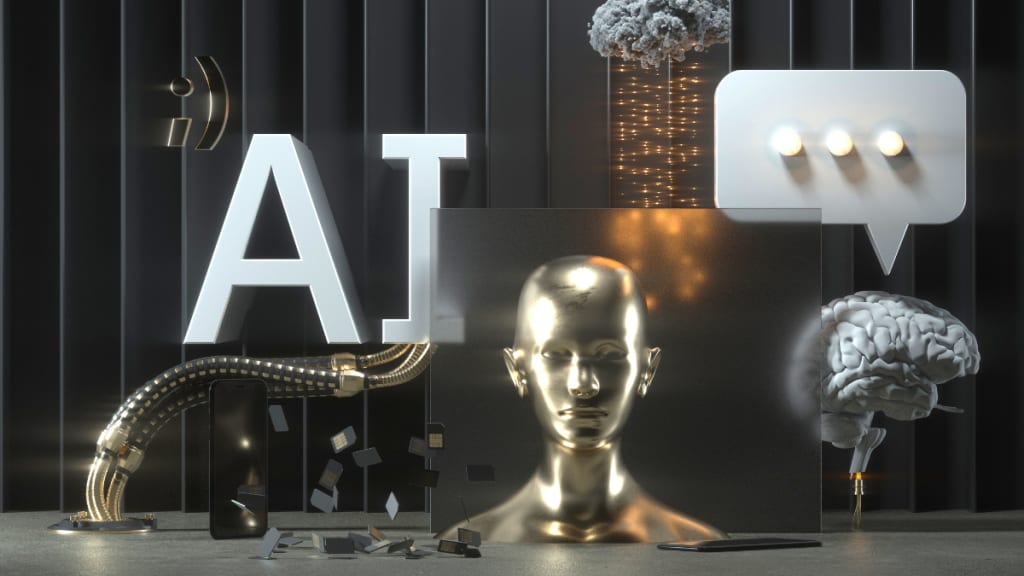Artificial Intelligence Development Agency: Transforming the Future
Artificial Intelligence Development Agency

In the fast-paced world of technology, artificial intelligence (AI) has emerged as a transformative force. From enhancing business processes to revolutionizing customer experiences, AI has opened up a realm of possibilities. To harness the power of AI and embark on a journey of innovation, organizations seek the expertise of an artificial intelligence development agency. In this article, we will delve into the realm of AI development agencies, exploring their role, capabilities, and the impact they have on shaping the future.
Understanding Artificial Intelligence Development
Artificial Intelligence (AI) development refers to the process of creating and improving systems that can perform tasks that typically require human intelligence. It involves designing algorithms, models, and systems that can learn from data, reason, and make decisions or predictions. AI development encompasses various subfields, including machine learning, natural language processing, computer vision, robotics, and expert systems. These subfields utilize different techniques and approaches to develop intelligent systems.
The Evolution of AI Development
AI development has undergone significant evolution over the years. In its early stages, AI focused on rule-based systems and expert systems, where human knowledge was encoded explicitly. However, advancements in machine learning and computing power revolutionized the field. The rise of neural networks and deep learning enabled AI systems to learn from data, leading to breakthroughs in image and speech recognition, natural language processing, and recommendation systems. The evolution of AI development continues as researchers explore cutting-edge techniques like generative models and address challenges such as interpretability and safety, paving the way for AI to play an increasingly vital role in various aspects of our lives.
The Role of AI Development Agencies
AI development agencies play a crucial role in advancing the field of artificial intelligence. These agencies are responsible for promoting research, innovation, and collaboration in AI technologies. They provide funding, resources, and expertise to support AI projects and initiatives. AI development agencies also facilitate partnerships between academia, industry, and government, fostering knowledge exchange and technology transfer. They help identify and address challenges in AI development, such as ethical considerations, data privacy, and bias mitigation. By supporting the growth and application of AI, these agencies contribute to economic growth, societal progress, and the responsible adoption of AI technologies for the benefit of individuals and organizations worldwide.
The Benefits of Partnering with an Artificial Intelligence Development Agency
- Expertise and Knowledge: AI development agencies have specialized expertise and knowledge in AI technologies. They stay up-to-date with the latest advancements and can provide valuable insights and guidance on AI strategy, implementation, and best practices.
- Accelerated Development: These agencies possess the necessary resources, including data and computational power, to accelerate the development process. They can help businesses rapidly prototype, train, and deploy AI models, saving time and effort.
- Access to Talent: Partnering with an AI development agency grants access to a pool of skilled AI professionals. These experts have experience in building AI solutions and can bring valuable insights and skills to the project.
- Collaboration and Networking: AI development agencies often have established networks and partnerships with academia, industry, and other organizations. Partnering with them opens doors to collaboration opportunities, joint research projects, and access to a wider ecosystem of AI experts and innovators.
- Ethical and Regulatory Compliance: AI development agencies stay informed about the ethical considerations and regulatory requirements in AI. By partnering with them, businesses can ensure their AI solutions adhere to ethical standards and comply with relevant regulations.
- Cost-Effectiveness: Partnering with an AI development agency can be cost-effective compared to establishing an in-house AI team. It eliminates the need for large upfront investments in infrastructure, recruitment, and training, while still benefiting from AI expertise.
- Competitive Advantage: Leveraging AI technology through a partnership with an AI development agency can provide a competitive edge. Businesses can enhance their products, services, and operations with AI-driven insights, automation, and improved decision-making.

- Ideation and Problem Definition: Identify the problem or opportunity that AI can address. Define the project goals, success criteria, and desired outcomes. Collaborate with stakeholders to gather requirements and understand the context and constraints.
- Data Collection and Preparation: Gather relevant data required for training and evaluation. Ensure the data is of sufficient quality and quantity. Preprocess and clean the data, perform feature engineering, and address any missing values or outliers.
- Model Selection and Training: Choose appropriate AI algorithms or models based on the problem and data characteristics. Train the selected models using the prepared data. This stage often involves techniques such as supervised learning, unsupervised learning, or reinforcement learning.
- Model Evaluation and Validation: Assess the performance of the trained models using appropriate evaluation metrics. Validate the models on separate data to ensure their generalization capabilities and reliability. Iterate and refine the models as necessary.
- Deployment and Integration: Integrate the trained models into the target application or system. Develop the necessary software infrastructure to support the deployment, including APIs, data pipelines, and user interfaces. Ensure compatibility, scalability, and efficiency.
- Testing and Evaluation: Conduct thorough testing to verify the functionality, performance, and reliability of the deployed AI system. Evaluate its effectiveness in achieving the desired outcomes and addressing the defined problem. Gather feedback from users and stakeholders.
- Monitoring and Maintenance: Continuously monitor the deployed AI system to ensure its performance and stability. Monitor data quality, model performance, and system behavior. Update and retrain the models periodically to adapt to changing conditions and improve accuracy.
- Ethical Considerations and Governance: Address ethical considerations, such as bias mitigation, fairness, privacy, and transparency, throughout the development and deployment process. Implement appropriate governance frameworks and practices to ensure responsible and accountable AI use.
- Continuous Improvement: Seek opportunities for continuous improvement and innovation. Collect feedback, analyze the system's performance, and iterate on the models and algorithms to enhance their effectiveness and efficiency.
The AI Development Process: From Ideation to Deployment
The AI development process involves several stages, from ideation to deployment. While the specific steps may vary depending on the project and organization, the following outline provides a general overview:
Conclusion
ChatGPT
Artificial Intelligence Development Agencies are playing a pivotal role in transforming the future by harnessing the power of AI technology. With their expertise, knowledge, and technical skills, these agencies are driving innovation and enabling businesses and organizations to leverage AI to its fullest potential.
By partnering with AI development agencies, businesses can benefit from accelerated development, access to talent, and collaborative networks. They can achieve competitive advantage, cost-effectiveness, and sustainable growth through AI-driven insights, automation, and improved decision-making.
In essence, Artificial Intelligence Development Agencies are shaping the future by revolutionizing industries, driving innovation, and empowering businesses to embrace AI as a transformative force in their operations and strategies. With their guidance and expertise, organizations can navigate the AI landscape and unlock the immense potential that AI holds for the future.






Comments
There are no comments for this story
Be the first to respond and start the conversation.